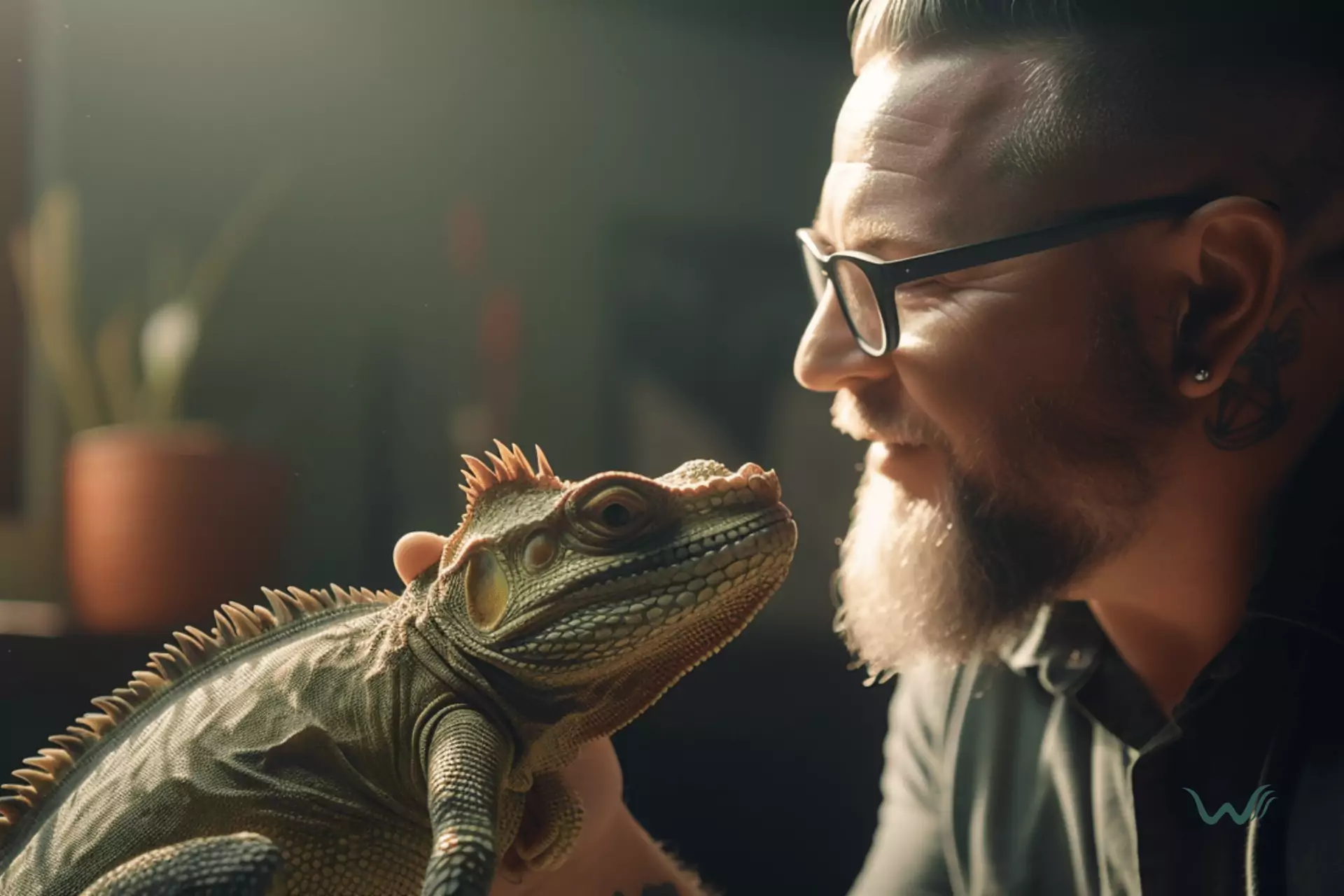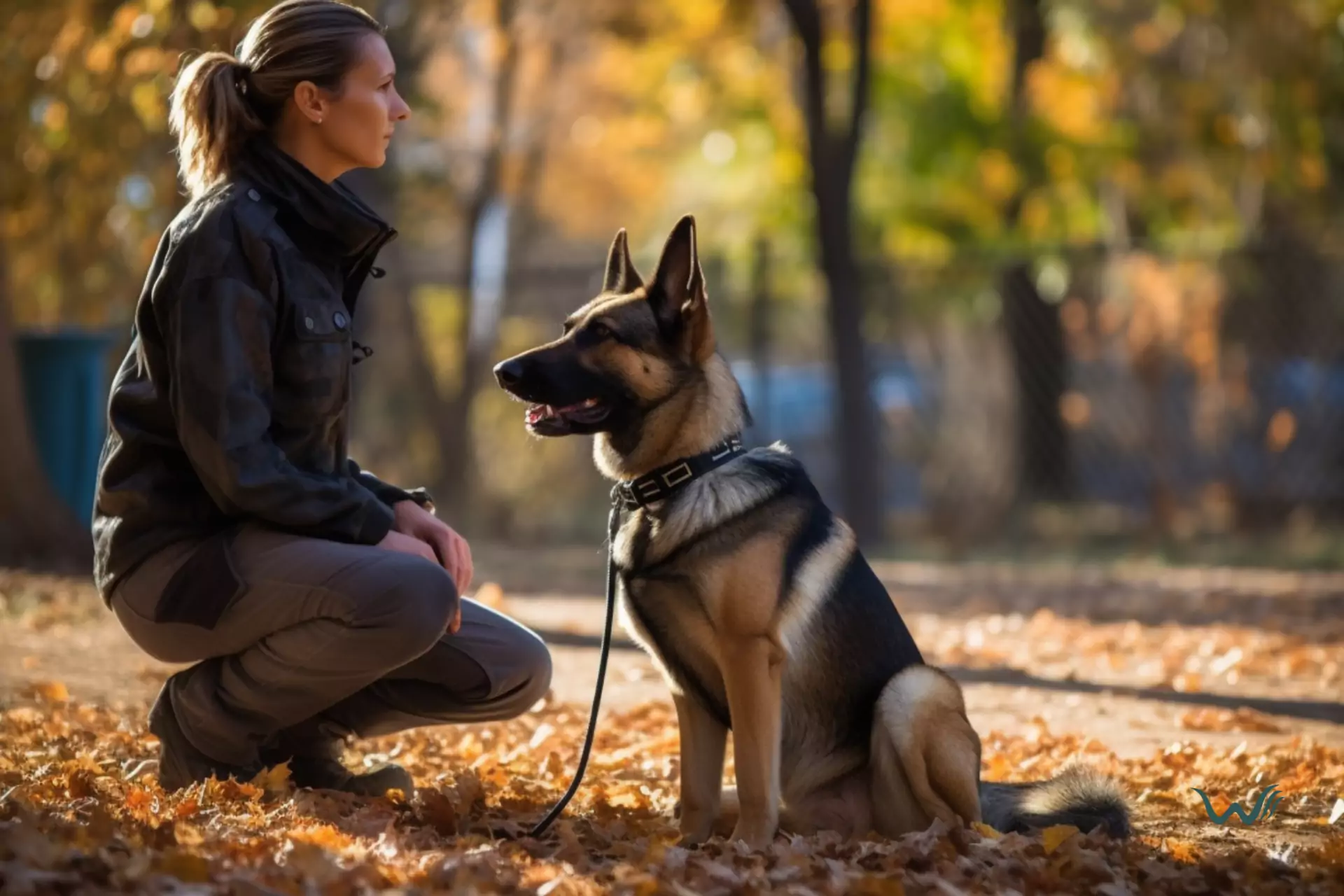

Connecting with Creatures: Positive Training for Exotic Pets
by Haley Mills
Last updated: February 21, 2024
Verified and Approved by:
Angela Morris,
MSW, LCSW
Fact Checked

Are you the proud owner of an exotic pet? Whether it’s a mischievous sugar glider or a regal reptile, you know that these unique creatures require a special kind of care and attention.
But how do you build trust and establish a strong bond with your exotic friend? That’s where positive reinforcement training comes in. By using this proven technique, you can create a harmonious and loving relationship with your exotic pet that will leave you both feeling like the king and queen of the jungle (or the living room, depending on your pet’s habitat).
Picture this: you and your exotic pet, side by side, embarking on a journey of trust and bonding. Through the power of positive reinforcement, you’ll be able to communicate effectively, teaching your pet new tricks and behaviors while building a foundation of trust and love.
It’s a win-win situation, really. Not only will you have a well-trained and happy exotic pet, but you’ll also have countless hilarious and heartwarming memories to cherish.
Key Takeaways
- Positive reinforcement training is effective for building trust and bonding with exotic pets.
- Exotic pets have unique needs including a secure habitat and specialized diet.
- Building trust with exotic pets involves patience, positive reinforcement, respecting boundaries, and consistency.
- Bonding activities such as puzzles and outdoor adventures strengthen the connection with exotic pets.
Understanding Exotic Pets’ Unique Needs
Now that you understand the basics of positive reinforcement training for exotic pets, let’s dive deeper into their unique needs and how to meet them, so you can build a strong bond based on trust and understanding.
Exotic pets, like your friendly neighborhood tarantula or your snuggly pet snake, have their own set of quirks and requirements that set them apart from traditional pets. It’s important to remember that these little critters didn’t choose to be exotic; they were just born that way. So, it’s up to you to create an environment that caters to their specific needs.
First and foremost, exotic pets need a cozy and secure habitat. Just think about it, if you were a tiny lizard or a hedgehog, wouldn’t you want a comfortable home to relax in? So, make sure to provide them with the appropriate enclosure and bedding that suits their needs.
Secondly, these unique pets require a specialized diet. No, you can’t just feed your pet tarantula your leftover pizza crusts (although, wouldn’t that be a sight to see?). Do some research and find out the specific dietary requirements of your exotic pet, and make sure to stock up on the appropriate food.
By meeting their unique needs, you’ll be well on your way to building a strong bond with your exotic pet. Plus, who knows, maybe they’ll even appreciate your sense of humor along the way!
Establishing a Foundation of Trust
First, take the time to create a strong bond with your exotic pet by consistently showing them love and understanding. Exotic pets, like any other animal, need to feel safe and loved in order to trust their owners.
Spend quality time with your pet, whether it’s playing, cuddling, or simply being in their presence. Show them affection and let them know that you care about their well-being. This will help to establish a foundation of trust between you and your exotic pet.
Now, let’s dive into a bullet list that will help you understand the importance of establishing a foundation of trust with your exotic pet:
- Be patient: Building trust takes time, especially with exotic pets who may have had previous negative experiences. Take it slow and allow your pet to adjust to their new environment at their own pace.
- Use positive reinforcement: Reward your pet with treats, praise, and affection when they exhibit desired behaviors. This will help them associate positive experiences with you and build trust.
- Respect their boundaries: Exotic pets may have different comfort levels when it comes to physical contact. Always respect their boundaries and never force them into situations that make them uncomfortable.
- Be consistent: Consistency is key when building trust with your exotic pet. Stick to a routine and be consistent with your actions and expectations. This will help your pet feel secure and build trust over time.
Using Positive Reinforcement Techniques
Additionally, research has shown that utilizing positive reinforcement techniques can increase an exotic pet’s willingness to learn and cooperate. So, instead of resorting to punishment or forceful methods, why not try a more positive approach? Treats, praise, and rewards can go a long way in motivating your exotic pet to participate in training sessions and build a stronger bond with you.
It’s like bribing a friend with pizza to help you move furniture – except in this case, your friend is a lizard, and the pizza is a delicious cricket. Positive reinforcement not only makes the learning process more enjoyable for your exotic pet, but it also helps to build trust and strengthen the bond between you two.
Just imagine the look of pure joy on your pet’s face when they successfully perform a trick and receive a tasty treat as a reward. It’s like winning the lottery for them! And let’s be honest, who doesn’t love winning the lottery? By using positive reinforcement techniques, you are creating a positive association between desired behaviors and rewards, making it more likely for your exotic pet to repeat those behaviors in the future.
Bonding Activities for Exotic Pets
Engage in fun and interactive activities with your unique companion to strengthen your connection and create lasting memories. Exotic pets thrive on stimulation and social interaction, so it’s important to find activities that cater to their needs.
For example, if you have a parrot, you can teach them how to solve puzzles or play games that involve problem-solving. Not only will this challenge their intelligence, but it will also create a bond between the two of you as you work together to achieve a common goal. And let’s be honest, who doesn’t want a parrot that can outsmart their friends?
Another great bonding activity for exotic pets is going on outdoor adventures. Take your lizard or snake for a stroll in the park (yes, really!) or create a mini obstacle course for your sugar glider to explore. Not only will this give them a chance to experience new sights and smells, but it will also give you an opportunity to spend quality time together.
Just imagine the looks you’ll get from passersby as they see you walking your pet lizard like it’s no big deal. It’s moments like these that create memories that will last a lifetime. So go ahead, get out there, and have a wild adventure with your exotic pet!
Can Positive Reinforcement Training Techniques be Applied to Exotic Pets as Well?
Yes, positive reinforcement training can be applied to exotic pets. Whether it’s a rescue bird, a rescued reptile, or any other unique animal, using positive reinforcement training techniques can help build trust, bond with the animal, and encourage desirable behaviors. Positive reinforcement training is effective for all pets, including exotic ones.
Overcoming Challenges and Building a Strong Relationship
To establish a strong relationship with your exotic pet, you must be prepared to face some challenges, my friend. It’s not all sunshine and rainbows, but trust me, the payoff is totally worth it.
These challenges can come in all shapes and sizes, from stubborn behaviors to trust issues. But don’t you worry, because with a little patience and a lot of love, you can overcome them all.
First things first, let’s talk about those stubborn behaviors. Exotic pets can be quite the characters, and they might test your limits from time to time. Who doesn’t love a good challenge? The key here is to stay consistent with your training and use positive reinforcement techniques. Show them that good behavior equals rewards, like treats or playtime. Trust me, they’ll catch on eventually. And when they do, it’s like hitting the jackpot!
Now, let’s tackle those trust issues. Just like humans, exotic pets need time to build trust and feel comfortable in their surroundings. It’s all about creating a safe and nurturing environment for them. Spend quality time with your pet, talk to them, and let them explore at their own pace. Remember, trust is earned, not given. So be patient and understanding. And before you know it, you’ll have a bond with your exotic pet that’s stronger than titanium.
Frequently Asked Questions
Can positive reinforcement training be used for all types of exotic pets, or are there certain species that are more difficult to train?
Training exotic pets using positive reinforcement can be challenging, but with patience and creativity, any species can be trained. Just like with any endeavor, some pets may need more time and effort, but the rewards are worth it.
How long does it typically take to establish a foundation of trust with an exotic pet?
Establishing a foundation of trust with an exotic pet varies depending on the individual animal. Some may warm up to you in a matter of weeks, while others may take months. Patience, consistency, and plenty of treats are key!
Are there any specific positive reinforcement techniques that are more effective for exotic pets compared to other animals?
When it comes to positive reinforcement training for exotic pets, there aren’t any specific techniques that are more effective compared to other animals. The key is to find what motivates your exotic pet and tailor your training accordingly.
What are some common challenges that arise when training exotic pets, and how can they be overcome?
Training exotic pets can present challenges such as fear, aggression, and unfamiliar behaviors. Overcome these obstacles by using patience, consistency, and positive reinforcement. By building trust and understanding, you’ll create a strong bond with your exotic pet.
Are there any bonding activities that should be avoided when working with exotic pets, as they may be too stressful or overwhelming for them?
Avoid any bonding activities that may stress or overwhelm exotic pets. Some examples include excessive handling, loud noises, or sudden movements. Instead, focus on gentle interactions, positive reinforcement, and gradually introducing new experiences to build trust and strengthen your bond.
Certify Your Emotional Support Animal Today

Why You Can Rely on Us?
At Wellness Wag, we believe your pet deserves care rooted in both science and compassion. Each article is carefully researched, written in clear language for pet owners, and then reviewed by qualified professionals to ensure the information is evidence-based, current, and practical for real-life care. Our goal is to help you feel confident in making informed decisions about your pet’s health and well-being.
Reviewed by
Angela Morris, MSW, LCSW
Angela is a licensed clinical social worker with 20 years of experience in patient advocacy and community mental health. She has assisted numerous clients with ESA evaluations and brings a deep understanding of disability accommodations, ensuring that all information is accurate, supportive, and practical.

Written by :
Haley Mills
Last Updated :
February 21, 2024










